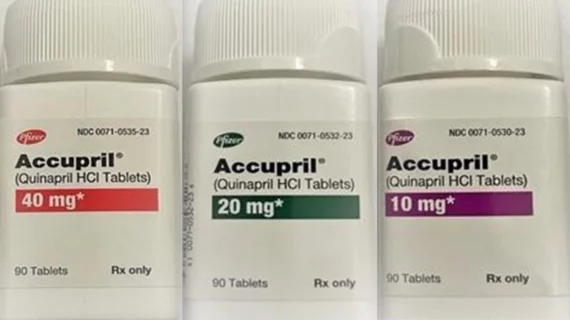Pfizer recalls hypertension drug over cancer risk
Drug maker Pfizer has voluntarily recalled a hypertension drug due to the presence of a potentially cancer-causing nitrosamine.
Five lots of Accupril (Quinapril HCl) tablets were part of the recall for the presence of the nitrosamine N-nitroso-quinapril. The drug is typically taken for hypertension to aid in lowering blood pressure. It is also indicated in the management of heart failure as adjunctive therapy when added to conventional therapy including diuretics and/or digitalis, according to Pfizer.
The recall comes after Pfizer already recalled hypertension medications for the same reason. Pfizer is not aware of reports of adverse events that have been assessed to be related to this recall, and Accupril has a 30-year safety profile.
“Although long-term ingestion of N-nitroso-quinapril may be associated with a potential increased cancer risk in humans, there is no immediate risk to patients taking this medication,” the recall stated. “Patients currently taking the products should consult with their doctor or health care provider about alternative treatment options for them.”
The Food and Drug Administration, which previously announced Pfizer’s recall, was aware of the latest recall round.

